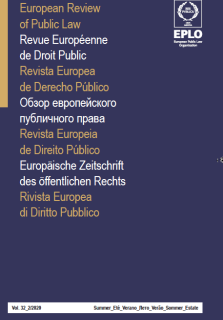
Financial and Banking Sectors in European Law:
From Mutual Recognition and Cooperation Mechanisms
to the Country-of-Origin Rule and Exhaustive Harmonization
Phd in Law at the University of Bologna (Italy). Researcher at the Autonomous University of Madrid
In the present study we aim at exposing a transversal analysis of the mechanisms of mutual recognition established by European Law in the Financial and Banking sectors, as well as the latest developments on the European Banking Union. Through this analysis, we expect to show a number of regulative techniques that compound what is known as the European Administration. The instruments employed within this particular sector at the European Union level are shown in order to serve as a model that might be extended to different economic sectors. As regards the Financial and Banking sector under European Law, we are in a position to state that in most of its aspects this sector (or sectors) is a model for European Law: a growing federalizing constitutionalization, in which existing national regulatory institutions are organized by common rules around new European institutions (perhaps in the future so-called federal ones) which exercise an important centralizing function and consolidate European legal certainty.
La présente étude présente une analyse transversale des mécanismes de reconnaissance mutuelle établis par le droit européen dans les secteurs financier et bancaire, ainsi que les derniers développements concernant l’Union bancaire européenne. Cette analyse entend exposer un certain nombre de techniques de régulation qui composent ce qu’on appelle l’administration européenne. Nous avons montré les instruments utilisés au niveau de l’Union européenne dans ce secteur particulier afin de servir de modèle susceptible d’être étendu à différents domaines économiques. Concernant le secteur financier et bancaire de droit européen, nous sommes en mesure d’affirmer que dans la plupart de ses aspects, ce secteur (ou ces secteurs) est un modèle pour le droit européen: une constitutionnalisation fédéralisante croissante, dans laquelle les institutions nationales de régulation existantes sont organisées selon des règles communes autour de nouvelles institutions européennes (qui seront peut-être dites fédérales dans le futur) qui ont une fonction centralisatrice importante et consolident la sécurité juridique européenne.
* The present study has been elaborated in the frame of the research project “Relaciones jurídicas transnacionales en el mercado interior y justicia administrativa” (DER2017-84500-P) financed by the Spanish Ministry of Science, Innovation and Universities, of which is IP Jorge Agudo González.





















